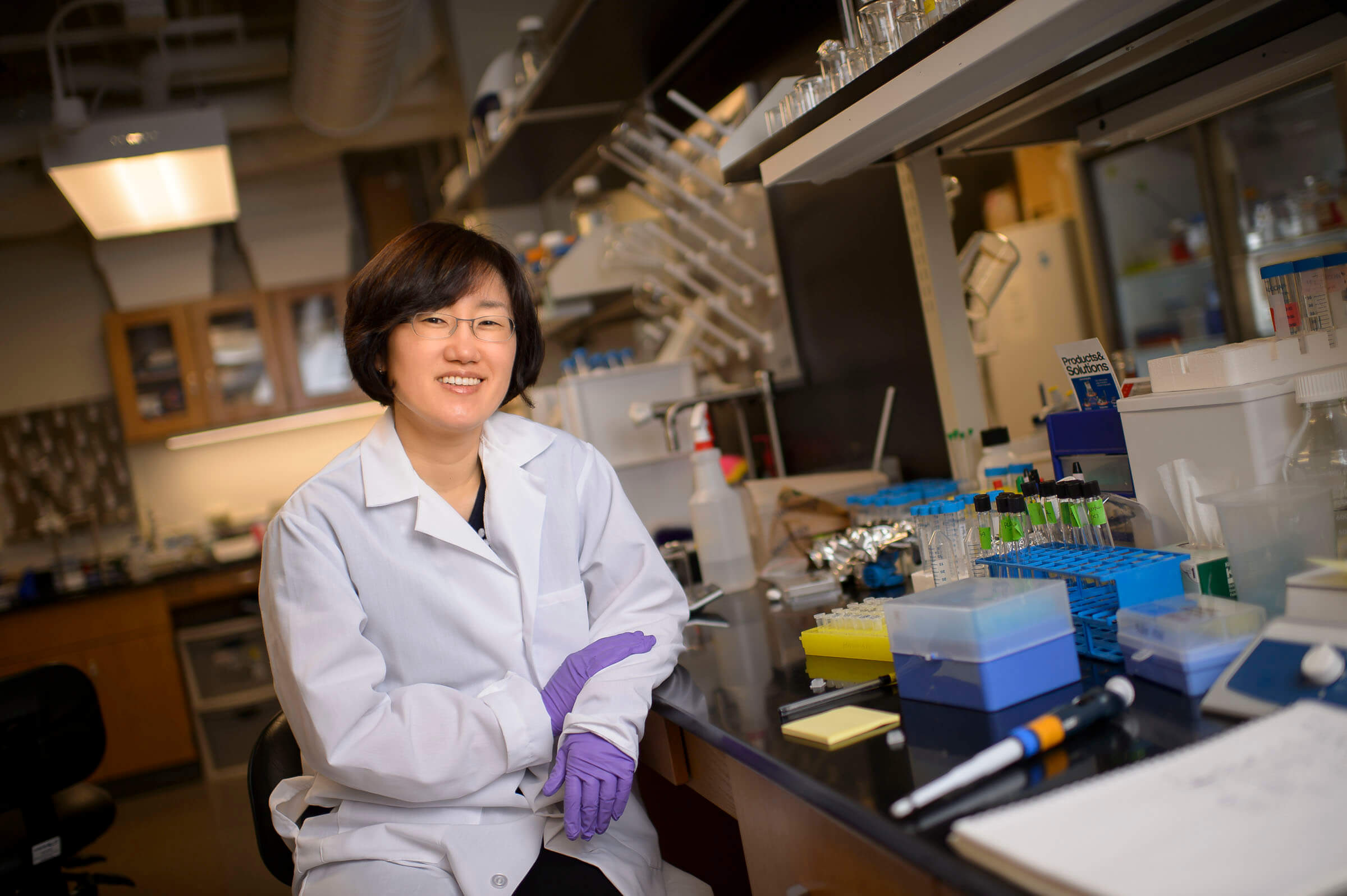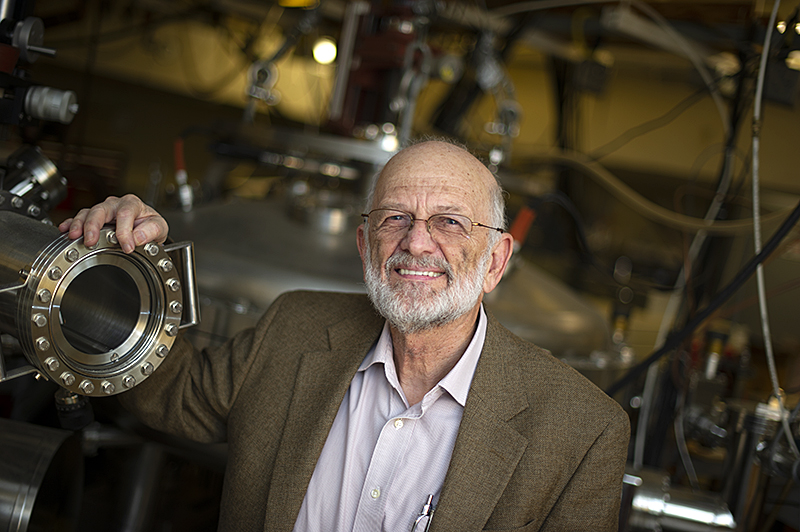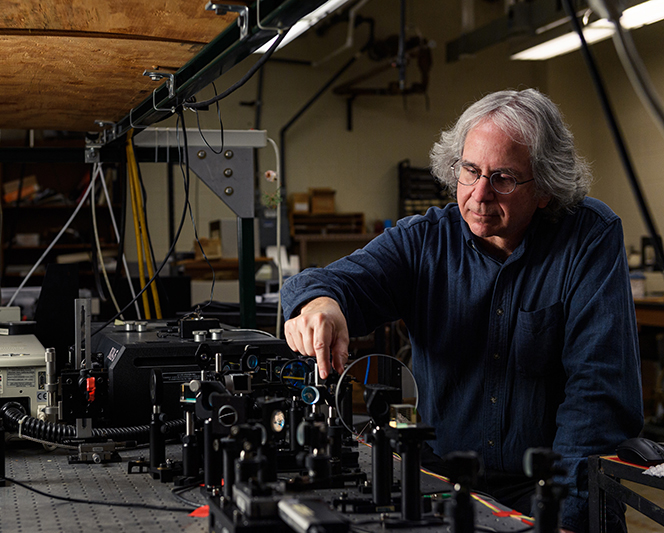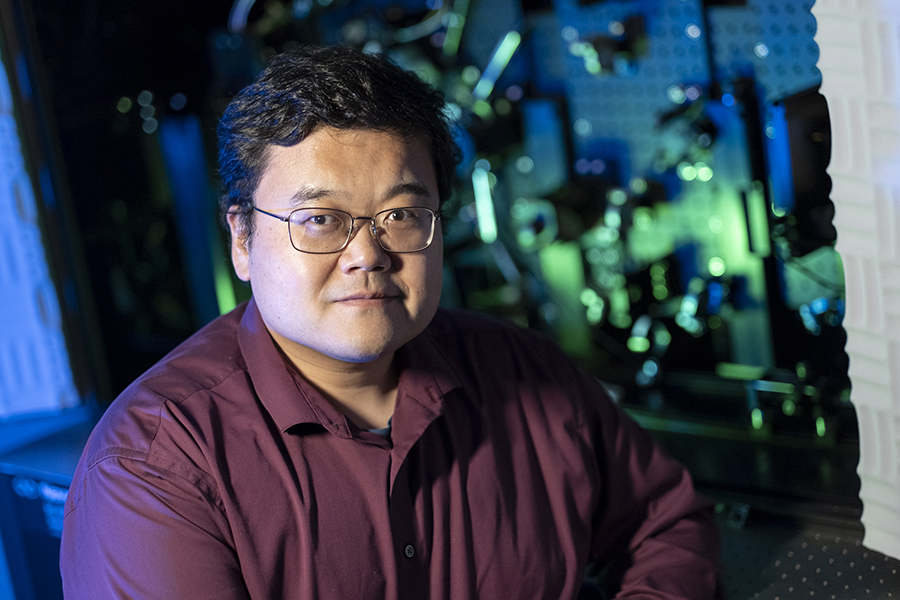impact area
Adult & Common Cancers
The Purdue Institute for Cancer Research drives progress against the most prevalent cancers, those that affect millions worldwide. With their high incidence and, in some cases, high mortality rates, these cancers present significant challenges for researchers. Advances in early detection, treatment and survival have a broad global impact.

FIGHTING CANCER AT SCALE
Addressing the world’s greatest cancer challenges
Common cancers, such as breast, lung, prostate and colorectal cancers represent the largest share of cancer diagnoses worldwide. Advancing cancer research in these areas is crucial to reducing the global cancer burden.
Our scientists work at the forefront of discovery, developing innovative approaches to improve patient lives and reduce the burden of cancer on individuals, families, and our communities. Through interdisciplinary research, the Purdue Institute for Cancer Research (PICR) scientists are developing new strategies to understand and treat some of the most common and complex cancers. By combining expertise across fields, we translate scientific discoveries into meaningful advances in patient care. The knowledge gained here does more than advance science. It improves the daily reality of cancer care for people around the world.
Breast cancer remains one of the most commonly diagnosed cancers worldwide and a leading cause of cancer-related death among women. Nearly one in eight women in the United States will be diagnosed with breast cancer in their lifetime.
Researchers at the PICR are tackling breast cancer through innovative approaches aimed at understanding breast cancer development and progression, early detection, and ultimately, new treatments and prevention. Ongoing studies investigate how changes in DNA packaging within cells may drive aggressive tumor behavior and how obesity influences breast cancer risk and outcomes. Other research focuses on identifying early biomarkers in the bloodstream that could lead to noninvasive diagnostic detection approaches.
Through this work, PICR scientists are advancing new tools and knowledge that may lead to more personalized and effective interventions for one of the most prevalent adult cancers.

Lung cancer is the leading cause of cancer-related death in the United States, claiming more lives each year than breast, prostate and colorectal cancers combined. Because it is often diagnosed at advanced stages, effective detection tools and targeted treatments are critical to improving outcomes.
Investigators at PICR are delivering real breakthroughs in the fight against lung cancer. Philip Low led the invention of CYTALUXⓇ, an FDA-approved fluorescent imaging agent now used by surgeons to better visualize and remove lung tumors. PICR Deputy Director Andrea Kasinski is advancing RNA-based therapies designed to reinstate natural cancer-fighting signals in lung cells and block the growth of aggressive tumors. Sandro Matosevic is developing immunotherapy strategies that engineer immune cells to function in the suppressive environment of solid tumors, including those in the lungs.
From molecular targeting to immune engagement and surgical precision, PICR researchers are transforming how lung cancer is understood and treated.
About 107,320 cases of colon cancer and 46,950 of rectal cancer are projected in the United States in 2025. Colorectal cancer is the third most common cancer diagnosis and the second leading cause of cancer death among men and women combined in the U.S. Although incidence rates have declined among older adults, cases are rising in adults under 50, highlighting an urgent need to understand why and how this disease is evolving. While screening tools like colonoscopies have improved early detection, disparities in access and limited options for early-onset patients point to critical research gaps.
At PICR, scientists are exploring the genetic, metabolic, and environmental drivers of colorectal cancers. Majid Kazemian has identified a gene that regulates colon cancer severity, shedding light on how inflammation and tumor progression are genetically controlled. Patricia Wolf is exploring how changes in the gut microbiome affect inflammation and tumor development. Andy Tao’s research applies phosphoproteomic technologies to uncover biomarkers that could lead to earlier detection or personalized treatment.
By identifying new mechanisms and intervention points, PICR scientists are working to reduce recurrence and improve outcomes for colorectal cancer patients.
Prostate cancer is one of the most commonly diagnosed cancers among men, with more than 1 in 8 men expected to receive a diagnosis in their lifetime. An estimated 313,780 new cases of prostate cancer were projected in the United States in 2025, with 35,770 men expected to die from the disease. While many cases are slow-growing and highly treatable, others can progress quickly and resist standard treatments, creating a critical need to distinguish between indolent and aggressive forms of the disease.
PICR researchers have contributed directly to changing how prostate cancer is diagnosed and treated. Philip Low led the development of two FDA-approved radiopharmaceuticals that have transformed the management of metastatic prostate cancer: Locametz®, which helps visualize metastatic tumors through PET imaging, and Pluvicto®, which delivers targeted radiation to cancer cells. Bennett Elzey studies how immune-suppressive cells within the prostate tumor environment interfere with the body’s ability to fight cancer, informing strategies for more effective immunotherapies. Timothy Ratliff’s work has helped shape prostate cancer immunology by elucidating immune cell interactions and testing immune-based therapies in prostate cancer models.
Together, scientists at the PICR are redefining how prostate cancer is understood, diagnosed and managed.
Bladder cancer is one of the most recurrent and costly cancers to manage, with many patients requiring long-term surveillance and repeated treatments. It disproportionately affects men and is often linked to risk factors such as smoking and industrial exposures. The projection for 2025 anticipates about 84,870 new cases of bladder cancer and 17,420 deaths in the United States. As with lung cancer, smoking is the most well-established risk factor. Despite its frequency, bladder cancer remains underfunded and under-researched compared to other common cancers.
PICR researchers have made meaningful progress in advancing how this disease is studied and treated. Deborah Knapp leads comparative oncology research in dogs with naturally occurring bladder cancer, helping to uncover strategies for early detection, molecular subtyping, and personalized treatment that translate to human patients. In collaboration with Knapp and others, Claudio Aguilar developed a novel therapeutic approach using a modified anthrax toxin paired with a growth factor to selectively kill bladder cancer cells while sparing healthy tissue—an approach that showed rapid, tumor-reducing effects in dogs that had exhausted other treatment options.
These advances reflect the PICR’s strength in bridging basic research and real-world application, with the goal of improving outcomes for a cancer that too often recurs.
Many other cancers affect millions of people worldwide. Cancers such as pancreatic, ovarian, liver, esophageal, kidney, and endometrial cancers each present unique challenges in detection, treatment, and survivorship. In the United States, about 40 out of 100 men and 39 out of 100 women will develop cancer in their lifetime. Scientists at the PICR are dedicated to fighting all cancers. Through collaboration across disciplines, we are working to accelerate progress and bring new hope to those affected by these devastating diseases.
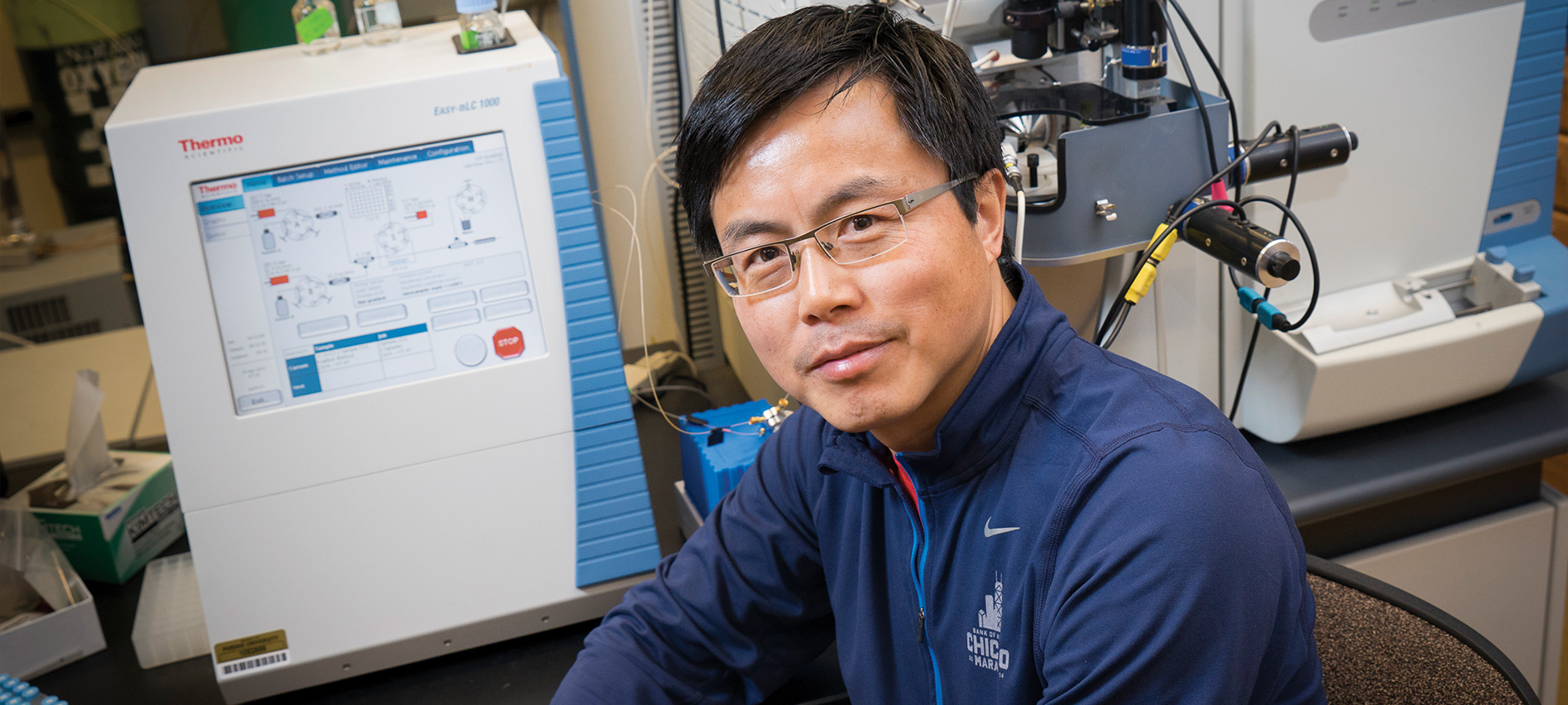
Detecting cancer early
Patients have the best chance for successful treatment and survival when cancer is caught early. PICR scientists are pioneering early-detection strategies and technologies, like liquid biopsies. These minimally invasive tests can detect cancer-related biomarkers in blood. Andy Tao is developing new methods to identify these biomarkers and help detect cancer earlier, without the need for tissue biopsies. Researchers at the PICR also leverage AI to analyze complex biomarker data and uncover molecular patterns that signal cancer onset, opening the door to earlier and more personalized interventions.
Novel imaging techniques
Better imaging resolution allows doctors to detect tumors earlier and track treatment responses more accurately. It also aids in precision surgery and targeted therapies. Among the breakthroughs developed by PICR researchers is CYTALUX®, an FDA-approved imaging agent invented by member Philip Low, Purdue’s Presidential Scholar for Drug Discovery and the Ralph C. Corley Distinguished Professor of Chemistry, that helps surgeons more effectively remove tumor cells. Low invented CYTALUX® as part of his founding work with On Target Laboratories.

From molecules to medicine
PICR scientists are leading discoveries that decode how cancer works, guide more personalized therapies, and improve surgical approaches for more precise and effective tumor removal.
Our research explores the fundamental underlying mechanisms of cancer, seeking to understand the molecular processes that drive the disease’s development and growth. PICR researchers are investigating how cancer cells interact with their environment, the role of inflammation in tumor development, and the metabolic shifts that sustain cancer growth.
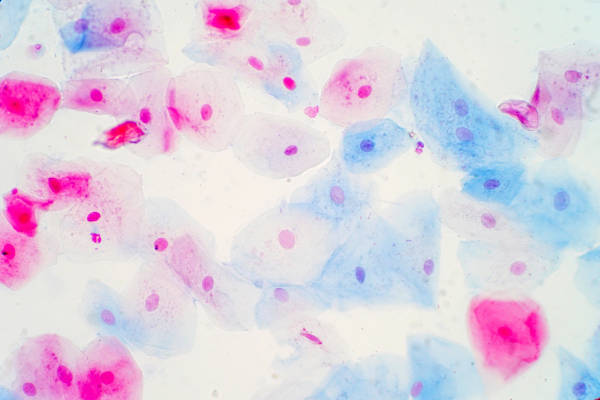
Cancer behaves differently in different patients, and so do treatments. PICR researchers are advancing precision oncology by studying the basic genetic alterations that drive cancer growth and cause drug resistance and then developing approaches to exploit these genetic differences to develop novel therapeutics and detection tools. AI and machine learning computational approaches are being used to analyze vast amounts of genomic sequencing data from patients (humans and dogs) to create digital twins to improve therapeutic outcomes.

PICR researchers are developing rapid, intraoperative molecular analysis tools such as Desorption Electrospray Ionization Mass Spectrometry (DESI-MS), invented by R. Graham Cooks, that help surgeons distinguish cancerous tissue from healthy tissue in real time. By identifying tumor-specific chemical markers during surgery, these techniques aim to improve tumor removal precision, reduce the risk of leaving cancer behind and lead to better patient outcomes.

SUCCESS STORIES
Moments and milestones in the fight against cancer
Forging new pathways in the fight against cancer, PICR researchers are making significant advances against some of the most common and challenging cancers affecting Boilermakers and people around the world. Explore the latest success stories highlighting how these breakthroughs are shaping the future of cancer treatment.
FUTURE WORKFORCE
Educating tomorrow’s cancer research leaders
The Purdue Institute for Cancer Research is committed to empowering the next generation of cancer scientists through rigorous, multidisciplinary training and education. Through hands-on research opportunities, mentorship and collaboration, we help train students and postdoctoral scholars to tackle the most pressing challenges in the field and push the boundaries of knowledge.
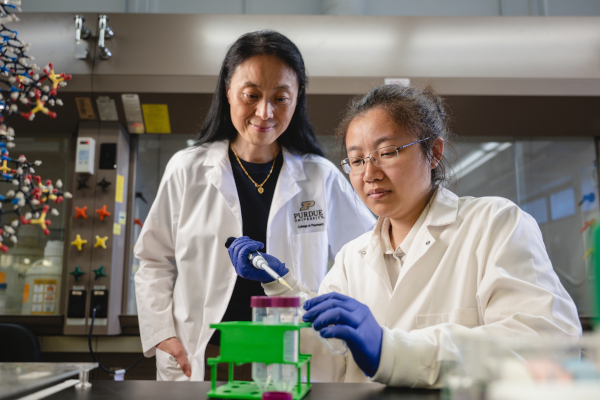
YOU CAN MAKE A DIFFERENCE
Your gift fuels innovation, empowers researchers and drives progress in the fight against cancer
Contact Us
Get in touch
Phone: 765-494-9129
Fax: 765-494-9193
Email: cancerresearch@purdue.edu
Meet our team
Find us
201 S. University St.
Hansen Life Sciences Bldg, Rm. 141
West Lafayette, IN 47907

